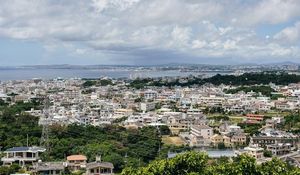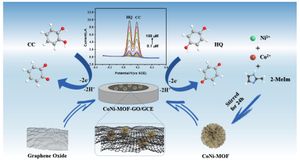Aurora, Colorado — The Tren de Aragua gang, infamously known as TdA, has garnered national attention, with recent actions by Councilmember Danielle Jurinsky propelling the gang’s violent criminal activities to the forefront of public consciousness. Following public outcry about the gang’s presence, Jurinsky has emerged as both a controversial figure and advocate for safety, positioning herself against the backdrop of political dynamics and community fear.
Jurinsky’s confrontational style has sparked reactions from her Council colleagues and locals alike. Dubbed "a bully" by some and embraced as a truthteller by others, her prominent stance against TdA has plunged Aurora, with its population of approximately 400,000, directly under the national microscope. Critically, her efforts have not gone unnoticed; they captured the attention of former President Donald Trump, which led to the launch of "Operation Aurora" aimed at curbing gang violence.
At an October rally, Trump highlighted Jurinsky’s work, underscoring her claims of residents being trapped and terrorized by gang members. "These mugshots you see," she declared, pointing to images of alleged TdA members, "this is not a feature of my imagination." Officers had approached her, stating their need for support against TdA's rising influence. Jurinsky later showcased videos of armed men raiding apartments, compelling local officials to confront the gang’s existence within their community.
Initially, city officials were reluctant to acknowledge TdA's infiltration, but as pressure mounted, they eventually committed to launching targeted police operations. Since these interventions, numerous arrests have occurred, including members captured on Jurinsky's viral video. The efforts reveal both the tangible risks posed by gang violence and the effectiveness of community advocacy through public exposure.
Born and raised in Aurora, Jurinsky's motivation stems from both her personal and professional experiences. Mother to a 5-year-old and formerly the owner of several bars and restaurants, she entered the political scene during the COVID-19 pandemic. Facing government restrictions on her businesses, she felt compelled to act; her frustration culminated with the Aurora City Council’s decision to raise the minimum wage to $20 amid pandemic closures. "That was kind of when the hammer dropped and I said, ‘I guess it’s time to get involved,'" she stated.
Throughout her tenure on the council, Jurinsky successfully pushed for legislative changes aimed at enhancing public safety, including mandatory minimum sentences for auto and retail theft. Her dedication places her at the heart of both local concerns and wider political discussions, as some caution about her confrontational approach. "Whenever she doesn't get her way," council colleague Francoise Bergan remarked, "she's bullied a lot of people on this council."
Despite critics, supporters echo the sentiment of her being "a force of nature." Council member Steve Sundberg defended her, stating, "When she fights, she wins." Jurinsky, reflecting on her newfound prominence, underlined her drive: "I’m guided by truth, and no matter how ugly the truth might be, I’m going to tell it." Her approach may ruffle feathers, but it also shines light on severe public safety issues as Aurora continues facing gang-related fears.
The national attention has not only highlighted Aurora’s challenges but has also raised significant questions about political motivations behind the scenes. Critics like Democratic strategist Ian Silverii have pointed out potential opportunism, stating, "It seems like there’s an agenda at play here and it’s hard to take it as anything more than cynical political gain." Such commentary broadens the conversation about the ethical responsibilities of public figures when addressing crime and community safety.
"I didn’t have President Trump or President Biden on my mind," Jurinsky recounted, emphasizing her focus on residents trapped by the gang. "Looking back, it was very close to the presidential election. Maybe I should have seen this coming." These comments reveal her awareness of the political theater surrounding her truth-seeking efforts. The controversy raises concerns about the real needs of the community being overshadowed by the pursuit of political gain.
Jurinsky insists her commitment remains solely to Aurora’s residents. "If I’m going to run for anything, it’s going to be to retain my seat," she affirmed, showcasing her dedication to local governance. Her desire to maintain authenticity echoes throughout her narrative; as she noted, "I believe the right people are going to be taken out of this country." This commitment to community safety echoed her belief about the deportation of criminals and the protection of law-abiding residents.
Behind the political storm, Jurinsky maintains her humanity, reflecting on how family influences her decisions. Citing her father as her biggest hero and recalling the late state Rep. John Buckner's impact during her upbringing, she stated, "It doesn't matter what your background is, you can fit in." Jurinsky intertwines personal history with her public service as she grapples with the challenges of being both a lawmaker and mother amid political chaos.
Despite the challenges and criticism, Jurinsky’s resolve to expose the violent realities of gang activity and advocate for community safety could signal significant shifts within local public policy. Her fight against the Tren de Aragua gang, layered with political intrigue and personal determination, embodies complex dynamics shaping Aurora's future.



